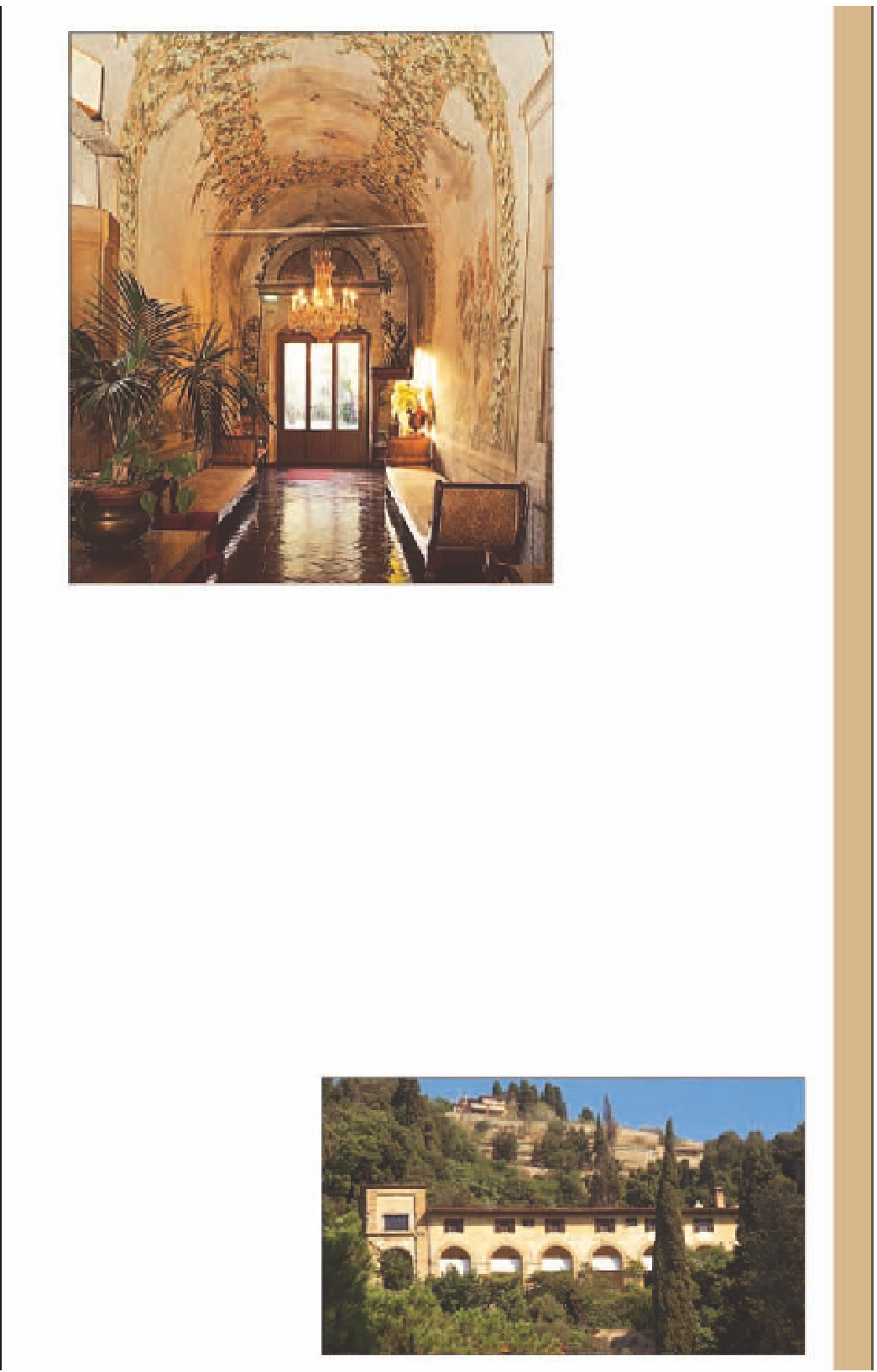Travel Reference
In-Depth Information
BOOKING AND PAYING
Book at least two months
in advance if you want to stay
in a particular hotel in high
season or at Easter. The local
tourist office will have listings
of all the hotels in the area
and will be able to advise you
on the best hotels for each
category. Most hotels take credit
cards, but check which ones
when booking. You can usually
pay the deposit by credit
card, or send an international
money order. Confirm your
reservation by fax or e-mail
including the dates of your stay
and your credit card details.
Under Italian law, a book-
ing is valid as soon as the
deposit is paid and confir-
mation is received. As in
restaurants, you are required
by law to keep your hotel
receipt until you leave Italy.
DISABLED TRAVELLERS
The gallery entrance of Hotel Villa Villoresi, just outside Florence
(see p256)
Facilities for the disabled are
usually limited. The hotel
listings on pages 250-63
indicate which hotels have
these facilities.
midsummer heat barely
penetrates the buildings.
Children are welcome but
the smaller hotels generally
have limited facilities. Often,
more up-market hotels will
arrange a baby-sitting service.
local bar or a
pasticceria
.
Florence can be very noisy.
Top-class hotels usually have
some form of soundproofing,
but ask for a room facing
away from the street if you
are easily disturbed by noise.
Check-out time is usually
noon in four- and five-star
hotels and between 10am and
noon in other establishments.
If you stay longer you will be
asked to pay for an extra day.
However, many hotels will
store your baggage if you plan
on leaving the city several
hours after check-out time.
Most hotels offer Internet
access and accept credit
cards but be sure to check
when booking, if you require
these or any other facilities.
HOTELS IN HISTORIC
BUILDINGS
WHAT TO EXPECT
The Tuscany regional tourist
board publishes a leaflet
which lists hotels in historic
buildings and those of artistic
interest. Some of the best are
included in the listings here.
The booklet is also available
from national Italian tourist
offices worldwide.
Relais
& Châteaux
produces a guide
that includes a number of fine
Tuscan hotels and hotel
restaurants of historic interest,
all of high quality.
In Florence, street numbers
can be confusing
(see p305)
,
so refer to the map references
in the listings.
Hotel proprietors are obliged
by law to register you with
the police, so they will ask
for your passport when you
arrive. Make sure you take it
back, as you will need some
form of identification to change
money or travellers' cheques.
Even a humble
pensione
should have a reasonably
smart bathroom. Rooms with-
out a bathroom will usually
have wash basins and towels.
As far as hotel decoration
goes, you may sometimes have
to sacrifice smart decor for the
charm of an old establishment.
The Italian breakfast is light -
a cappuccino and a pastry
(brioche)
. Most hotels serve a
continental breakfast of coffee,
tea or hot chocolate, bread
rolls and jam. However, it
may be cheaper to go to a
Villa San Michele, a former monastery, in Fiesole
(see p256)






































